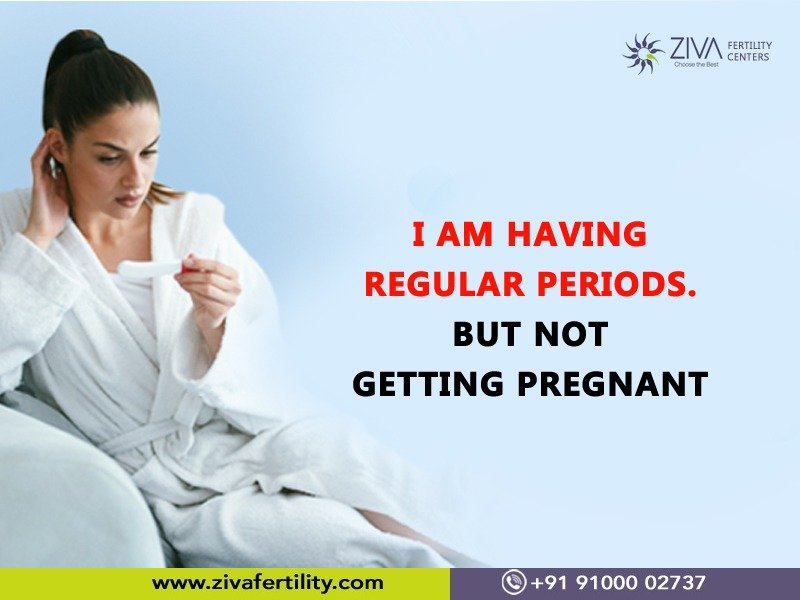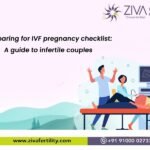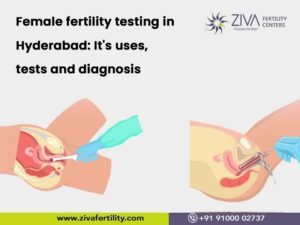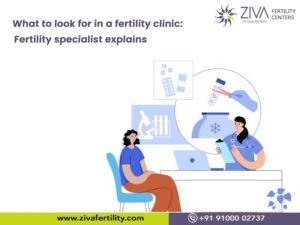After marriage, every couple eagerly waits for when they will be promoted to parents. Every girl is “taught” about periods when they first get their periods as a teenager. As girls grow up, they will realise the importance of periods for pregnancy. In most cases, periods are a fertility indicator, too. In most women, having regular periods is an indication that the female reproductive system is working appropriately.
For conception, one should have regular unprotected sex for at least a year if the woman is below 35 years of age and for 6 months for women aged above 35. Within these stipulated periods, women should conceive. The menstrual cycle is beautiful, which means that a woman is ready to bear a child when she is ready. Our ZIVA Fertility experts say that periods can be your body’s way of communicating with you, and your period can be a window into your health and fertility. Regular periods give an insight into your cycles and fertility windows.
But even after having regular periods and not getting pregnant, it is natural to wonder. The family also wonders if everything is okay. Now is the time to look at cycle length, flow rate, and duration between periods, as they can all impact your ability to conceive. Periods are directly affected by the same hormones which help pregnancy and sustain the pregnancy full-term. Hormone imbalance could be due to underlying medical conditions, stress, or extreme changes in diet; there’s a good chance your menstrual cycle will get thrown off, too.

Signs to check for if “I am having regular periods, but not getting pregnant.”
Please check the period flow
If you are having regular periods, it is a good indication of your chances of getting pregnant. The period flow indicates your fertility, and if you are having abnormally heavy or light periods, please get checked. Do not wait for professional help till you are trying to have a child. As soon as you have flow irregularities for 2-3 months, please visit a good doctor. Later on in life, when trying to conceive, if you are having regular periods but not getting pregnant, your flow could hint at the cause.
Issues with fertility due to heavy bleeding
According to the American Centers for Disease Control and Prevention (CDC), below are the symptoms of a heavy period:
- Are you changing your menstrual pad/tampons or any other product you might use every two hours?
- Are there coin-sized clots in the bleeding?
- Is the flow lasting for more than 7 days?
- An extremely heavy menstrual flow is called menorrhagia, leading to dizziness, fainting, anaemia, or shortness of breath during the periods. Heavy periods could be due to:
- Uterine fibroids or polyp
- Endometriosis
- Adenomyosis, which means that the uterine tissue grows into the muscular uterine wall
- Irregular ovulation
- Hypothyroidism
Issues with fertility due to light bleeding

Light periods are a result of:
- Underweight
- Stress
- If nearing perimenopause.
- PCOS is where you are producing higher-than-average androgen hormones.
But please note that if you always had a pretty light period, or if it’s always been on the short side, then this might not be the factor for pregnancy issues. However, if either of these two conditions suddenly starts, please look into what’s causing such an issue.
Period cycle length
The duration of your period cycle is crucial since abnormally long and short menstrual cycles directly affect your fertility. If you see sudden changes in cycle length, then it is a signal about a hormonal imbalance or other underlying medical issues. A healthy cycle length is 28 days, which is an empirical figure and not a hardbound number. Cycle length helps to understand the ovulation time frame and thus can help determine the fertility window.
Impact of long cycles on your chances of conception
The long duration between cycles means there are ovulation issues. Long cycles mean there is a challenge in releasing an egg, so the baby-making process is naturally difficult. But please do not start worrying if you have occasional longer cycles. Conditions such as travel, stress, or even illness can delay the periods. Pay attention to whether the gap exceeds 45 days or more or whether longer-than-average cycles are becoming the norm.
Impact of short cycles on your chances of conception
On the flip side, if you are getting your periods often, please don’t think that you might be highly fertile; that’s not always the case. An abnormally short cycle means a defect in the luteal phase.
After ovulation, the luteal phase is the second half of the cycle, where the progesterone rises in case of implantation. If the luteal phase is less than seven days, it makes the pregnancy unlikely. The ideal period is around 14 days.
Defects in the luteal phase cause spotting and repeated early miscarriages. There are fertility drugs which can fix this condition.
Spotting between periods
Spotting between periods means that the hormone levels are slightly off balance, and it is more common during the starting months of periods. Spotting is the result of low progesterone hormone levels or if oestrogen levels are too high.
Other factors in play if you are having regular periods but not getting pregnant
When conceiving apart from periods, there are many factors to consider, such as:-
- Please try long enough. Based on your age, please try for 1 year if you are below 35 years and 6 months if you are above 35.
- Get checked for any ovulation issues.
- It is very important to know your male partner’s fertility as well. In about 30% of infertility cases, the male factor infertility is the cause. When it comes to infertility, both partners should be tested. In males, semen testing is the first step. Semen testing is done to test the quantity, quality, motility, and morphology of the sperm.
- After crossing the age of 40, even if your periods are regular, the quality and quantity of eggs reduce, which could lead to a lack of pregnancy.
- Please get yourself checked for any blocked fallopian tubes due to scarring, adhesions, or surgeries.
- Are you suffering from endometriosis, where the uterine wall grows outside the uterus?
- How is your general health? Do you have thyroid, diabetes, and hypertension?
- Consider your lifestyle choices, such as whether you have the habit of smoking or taking excess alcohol.
- How are your and your partner’s weight? Being obese or too thin is neither good.
- Always consider the possibility of an unexplained infertility.
The bottom line is that there are numerous reasons why “I am having regular periods, but not getting pregnant. ” There are various medical treatments, ART options, and surgical options available to conceive. For more information, please visit our website https://zivafertility.com/ or contact us at +91-9100002737 or +91-9392834024.
















